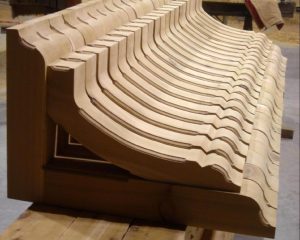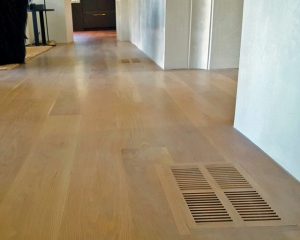 Aside from stone, wood is one of the oldest natural materials used by humankind to build shelter from the elements. Almost as soon as people began to see the need for shelter, they recognized that wood provided the strength, rigidity, availability, and malleability to be the perfect braces for timber construction.
Aside from stone, wood is one of the oldest natural materials used by humankind to build shelter from the elements. Almost as soon as people began to see the need for shelter, they recognized that wood provided the strength, rigidity, availability, and malleability to be the perfect braces for timber construction.
While building materials and techniques have certainly come a long way over the last 4,000 years, wood remains a popular component in modern architecture, as timber suppliers can attest. Whether it’s used in a decorative capacity in flooring and wall coverings or in the heart of a structure built with timber frame construction, it remains a common primary product.
But, what are the benefits of using wood as a building material? Certainly, there are more modern resources like steel and composites that can match or supersede the strength and beauty of wood. While it’s true there are many competitors for its dominant position as the building material of choice in small structures, there’s no reason to believe that it will relinquish its dominance anytime soon. Read here to learn more about its many benefits.
Greater Versatility
One of the most attractive characteristics of wood for use in construction is its sheer versatility. As a structural building material, it can be shaped and hewn to almost any purpose, from the studs from which the average residential wall is created to artistically rendered rough-hewn support timbers in mountain lodges. Not only are the skeletons of structures built from wood components, but they’re often sheathed in plywood or wood-based composites that can protect homes from the elements. It’s also always in style as a decorative element used in floorings, wall coverings, and exposed architectural features. It can be shaped for any purpose, and its strength, rigidity, and durability make it a perfect choice for almost any building project.
Excellent Thermal Properties
Another lesser-known benefit of wood construction materials is their advantageous thermal properties. Wood can tolerate a wide range of temperature fluctuations without warping, contracting, or expanding significantly. Unlike steel, which can become compromised when exposed to heat extremes, wood becomes harder in the presence of high heat because it dries out and becomes denser. It’s also better for use in construction than other common building materials because it has beneficial insulative properties. It doesn’t transmit heat or cold as readily as materials such as steel, aluminum, glass, and concrete, which makes it ideal for use in building energy-efficient homes.
Advanced Acoustic Properties
Wood also has better acoustic properties than any other commonly used construction material. Because it’s porous and absorbs sound waves more readily than harder materials like steel, concrete, and glass, it can buffer sounds better and prevent the sharp echo effect often experienced in structures crafted from other materials. Not only is this important for peace and privacy in residences and offices, but it’s also important in structures where acoustics are critical such as concert halls and auditoriums.
Beneficial Tensile Strength
 In construction, tensile strength is an essential consideration when choosing a building material. Because of the stresses under which structures are placed by forces such as gravity, great tensile strength is critical. Tensile strength is the ability of a material to bend without breaking. When compared to other building materials, wood has one of the highest tensile strengths available, which makes it ideal for construction. As an added benefit, the tensile strength to weight ratio is favorable, which is also crucial in construction.
In construction, tensile strength is an essential consideration when choosing a building material. Because of the stresses under which structures are placed by forces such as gravity, great tensile strength is critical. Tensile strength is the ability of a material to bend without breaking. When compared to other building materials, wood has one of the highest tensile strengths available, which makes it ideal for construction. As an added benefit, the tensile strength to weight ratio is favorable, which is also crucial in construction.
Because of these and many other beneficial characteristics, wood is still in use as a common building material as it has been for thousands of years. Whether used to craft the support structures of buildings or in decorative elements such as wide plank flooring in Atlanta, wood has an unbeatable set of features that make it a desirable building component in the construction industry. To learn more about its many benefits, contact WOOD & Co. at (770) 514-0129.
